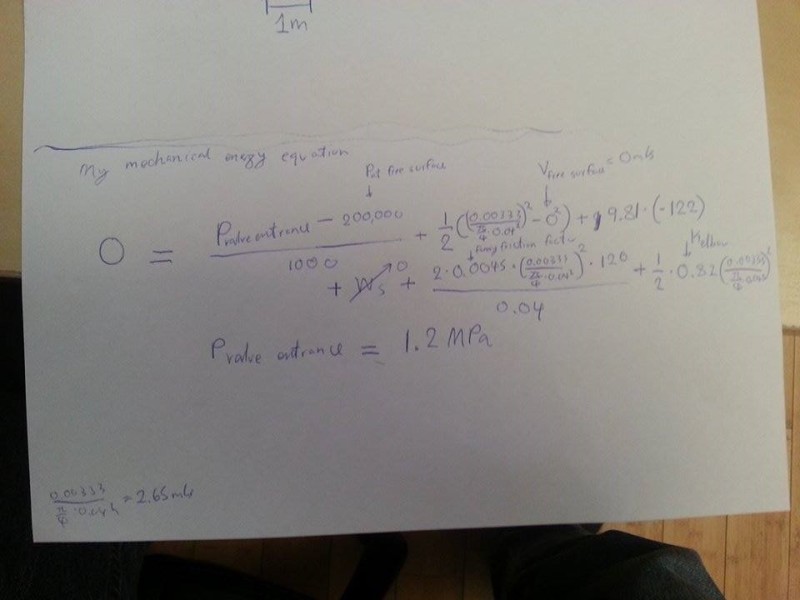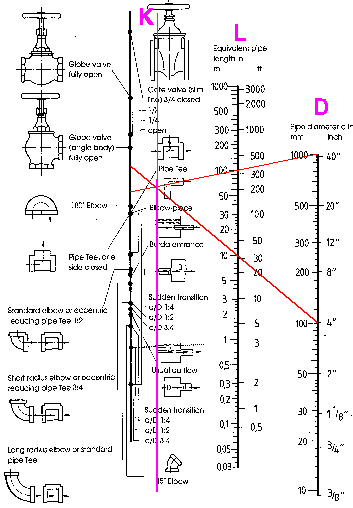Hi guys, I have a question I would like to ask about calculating water in high-rise building.
Assuming that there is a water tank on the roof of a 200m tall building. The height of water in this tank is 2metres and will always remain 2metres. For simplicity, assume that each floor has a height of 40m, thus 5 floor total in the building. The water from the tank flow vertically downward, with elbow in every floor (to supply water). The question is, "in the second floor" there is a value position exactly 1m away from the elbow, if the water coming out of the value is 3bars (flow rate is 0.00333 m^3/s) what is its Lequivalent of the valve?

I believe mechanical energy equation can easily solve this problem, but the problem I have is that "the pressure entering the value is way too high casuing Leq to be larger than the building itself".
I calculate the pressure entering the valve using this formula, P(valve entrance)=P(free surface in this case)+water density*g*height(which is 120m in this case). Thus I got the pressure entering the valve to be little less than 1.4Mpa. Which is way too high
I also tried using mechanical energy equation but still the pressure is too high (see attachment)

I'm sure that there must be something that I left out during my calculation for pressure at the valve entrance. Can anyone give me a head up of what I missed?
Assuming that there is a water tank on the roof of a 200m tall building. The height of water in this tank is 2metres and will always remain 2metres. For simplicity, assume that each floor has a height of 40m, thus 5 floor total in the building. The water from the tank flow vertically downward, with elbow in every floor (to supply water). The question is, "in the second floor" there is a value position exactly 1m away from the elbow, if the water coming out of the value is 3bars (flow rate is 0.00333 m^3/s) what is its Lequivalent of the valve?

I believe mechanical energy equation can easily solve this problem, but the problem I have is that "the pressure entering the value is way too high casuing Leq to be larger than the building itself".
I calculate the pressure entering the valve using this formula, P(valve entrance)=P(free surface in this case)+water density*g*height(which is 120m in this case). Thus I got the pressure entering the valve to be little less than 1.4Mpa. Which is way too high
I also tried using mechanical energy equation but still the pressure is too high (see attachment)

I'm sure that there must be something that I left out during my calculation for pressure at the valve entrance. Can anyone give me a head up of what I missed?

